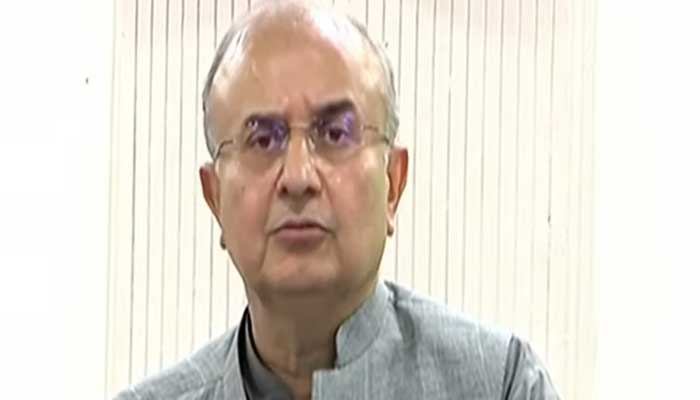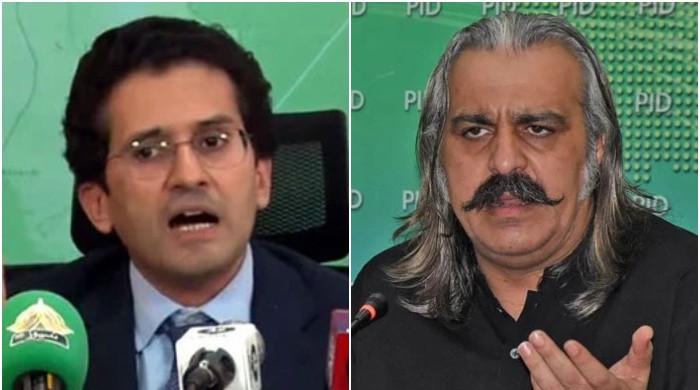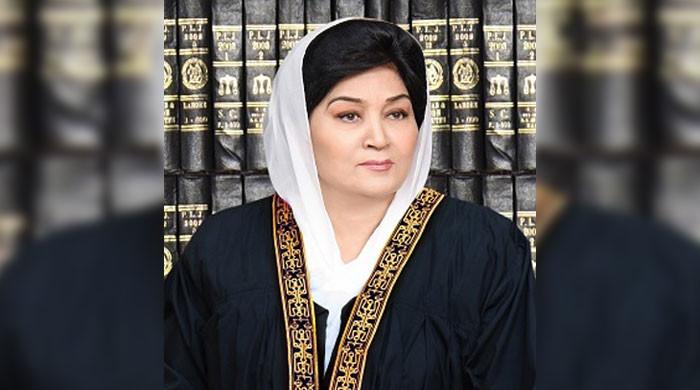'Separation of powers': SC verdicts can't be 'disregarded', says Justice Mansoor Ali Shah
Senior puisne judge says not implementing apex court's rulings would be "a violation of the Constitution"
August 10, 2024

- Justice Shah says Supreme Court judgments are implemented.
- "Balance of Constitution will be out if SC rulings not implemented."
- Separation of powers is core component of democracy: SC judge.
Supreme Court's senior puisne Judge Mansoor Ali Shah has stressed the importance of implementing the top court's verdicts, saying that there is no option to "disregard or delay" the judgments.
"The SC verdict cannot be disregarded or delayed or else the entire legal system will be disrupted and the balance of Constitution will be out if you seek non-implementation of judgments," he said Saturday while addressing an event in Islamabad.
“I want to underline that Supreme Court’s judgments [always] get implemented and it is the structure of the Constitution," Justice Shah said, stressing that there has never been a case where an apex court verdict was not implemented.
He said that not implementing the SC rulings would be "a violation of the Constitution".
"There is no choice but to comply with the Supreme Court’s orders," he added.
The SC judge further stated that implementation of judgments was the structure of Constitution as the top court draws the authority to decide the matters from the Constitution, which is the supreme law of the land, instead of any other document
"No one has the choice to call it [SC rulings] 'wrong' or 'not right'. The Constitution says that this is a judgment and it has to be implemented," he said.
Justice Shah went on to say that those who have any objection to the Supreme Court's verdict can change the entire structure of the Constitution "but right now this is how it is".
He said that disregarding the apex court's rulings was also "against the separation of powers".
“Separation of powers is the core component of democracy which shouldn’t be disturbed. This is not a burden or a courtesy that you have to do, but a constitutional obligation that needs to be fulfilled.
"This is a delicate equilibrium which needs to be respected. We have an obligation to keep this equilibrium in balance and there shouldn’t be any executive overreach. No one has the choice or the prerogative to second guess if the judgment is right or wrong," the justice said.
He said that only SC had the prerogative to decide a matter and after that the judgment has to be implemented.
There will be severe consequences if the constitutional duty of implementing the SC's orders is not fulfilled, he added.
It may be noted that the ruling parties recently passed the Elections (Second Amendment) Bill, 2024, in parliament which seeks to 'circumvent' the Supreme Court's July 21 ruling that declared Pakistan Tehreek-e-Insaf (PTI) a political party and eligible for reserved seats.
The apex court’s full bench on July 21 ruled in favour of the Imran Khan-founded party in the reserved seats case, paving the way for its return to the parliament and effectively depriving the PML-N-led coalition government of its two-thirds majority in the parliament.
Justice Shah had announced the 8-5 majority verdict of the SC full bench, which declared the PTI eligible to receive reserved seats for women and minorities.











